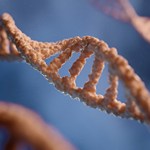Trisomy 13 Awareness Day Date in the current year: March 13, 2026
 Trisomy 13 Awareness Day, also known as Patau Syndrome Awareness Day, is observed annually on March 13. It was created to raise awareness of a rare genetic syndrome with an extremely poor prognosis.
Trisomy 13 Awareness Day, also known as Patau Syndrome Awareness Day, is observed annually on March 13. It was created to raise awareness of a rare genetic syndrome with an extremely poor prognosis.Human cells normally have 46 chromosomes, or 23 pairs; one chromosome in each pair is inherited from the mother, and the other is inherited from the father. However, sometimes the egg or the sperm cell has a second copy of one chromosome, which may result in the embryo also having an extra copy of this chromosome.
A condition in which there are three copies of a particular chromosome instead of the normal two is called trisomy; the extra copy can be complete or partial. Trisomy can occur with any chromosome, but trisomies in most chromosomes result in a miscarriage during the first trimester. The most common types of trisomy in autosomes (non-sex chromosomes) that can result in a viable pregnancy are Trisomy 8 (Warkany syndrome 2), Trisomy 9, Trisomy 13 (Patau syndrome), Trisomy 18 (Edwards syndrome), and Trisomy 21 (Down syndrome).
Trisomy 13 rarely results in a viable pregnancy. In rare cases when a fetus with Trisomy 13 survives the pregnancy and birth, the child develops Patau syndrome characterized by multiple and complex organ defects. The syndrome was named after German-American geneticist Klaus Patau, who proved its chromosomal nature with his wife Eeva Therman in 1960.
Patau syndrome may affect the nervous system, eyes, musculoskeletal system, skin and hair, genitalia, kidneys, and cardiovascular system. Children born with the syndrome often have microcephaly (a small head), facial deformities, polydactyly (extra digits), low-set ears, deformed feet, cleft palate, and other visible abnormalities. More than 80% of children with trisomy 13 have a congenital heart defect.
Patau syndrome has a very poor prognosis: about 90% of infants with trisomy 13 die within the first year of life due to complex heart defects or severe neurological problems. Those who do survive typically have psychomotor issues, seizures, and intellectual disability.
Medical management of Patau syndrome focuses on supportive care. It usually involves surgery for heart and other defects, and physical, speech, and occupational therapy to improve the patients’ quality of live and help them reach their full developmental potential. Surviving children are typically severely disabled, but those who get the care they need are often described as happy.
March (the third month of the year) is National Trisomy Awareness Month, and March 13 was designated as Trisomy 13 Awareness Day to specifically highlight Patau syndrome. It is marked by various events that aim to educate the general public about Trisomy 13 and support families affected by the syndrome.
You can get involved by learning more about Trisomy 13 and sharing the facts you’ve learned with others, donating to an organization that supports children with Patau syndrome and their families or funds research, and spread the word on social media with the hashtags #Trisomy13AwarenessDay, #PatauSyndromeAwarenessDay and #NationalTrisomyAwarenessMonth.
- Category
- International Observances
- Tags
- Trisomy 13 Awareness Day, Patau Syndrome Awareness Day, awareness days, international observances